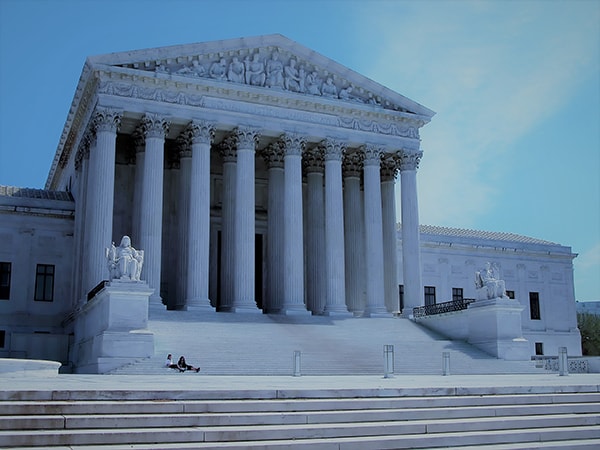Federal Crime Lawyer: Defending Your Legal Rights Versus Serious Federal Charges
Federal Crime Lawyer: Defending Your Legal Rights Versus Serious Federal Charges
Blog Article
Demystifying the Process of Federal Appeals: What You Need to Know
Navigating the detailed realm of government appeals can usually seem like traversing undiscovered waters for those not familiar with the process. Recognizing the nuances of appellate court territory, the complexities of submitting a notification of appeal, offering an engaging brief, and making a persuasive oral argument are important elements that can dramatically impact the end result of a case. By untangling the layers of intricacy bordering federal appeals, individuals can obtain a more clear insight into the devices that regulate this important stage of the legal system.
Understanding Federal Appeals Refine
Digging into the intricate world of the government appeals process unveils a organized and systematic trip with the judicial system - best federal appeals attorneys pennsylvania. Federal appeals function as an essential device for evaluating decisions made by reduced courts. Recognizing this process is necessary for anyone included in lawful proceedings at the federal degree
The process generally starts with an event dissatisfied with a lower court's judgment submitting a notice of charm. This causes a review by a greater court, where a panel of courts assesses the legal debates provided by both parties. Briefs detailing the legal thinking behind each party's placement are submitted, and dental debates might be heard to clear up intricate issues.
The appellate court's choice is based on a thorough exam of the lower court's procedures and the arguments presented. The judges do not concentrate yet reexamine facts on whether legal errors occurred that affected the lower court's choice. Once the appellate court reaches a decision, it can affirm, reverse, remand, or modify the lower court's ruling, offering clearness and finality to the legal conflict. Comprehending this process is important for navigating the complexities of federal appeals efficiently.
Appellate Court Territory Described

Appellate courts have jurisdiction over specific types of instances, generally those involving legal errors, step-by-step problems, or inquiries of legislation instead of valid disputes. The jurisdiction of appellate courts is typically detailed in statutes and regulations that regulate the court system. Recognizing appellate court territory is important for celebrations associated with the appeals process as it determines whether a case is eligible for review and the level to which the appellate court can interfere in the reduced court's choice.
Filing a Notice of Appeal
The initial action in starting the government charms process involves filing a Notification of Allure with the proper appellate court. federal appeals lawyers in seattle washington. This important document officially notifies the court and the various other parties associated with the case that the appealing celebration intends to look for a review of the lower court's choice. Filing a Notification of Appeal is a stringent procedural demand that establishes the appellate process moving
When preparing the Notice of Charm, it is vital to make sure compliance with the particular regulations and guidelines of the pertinent appellate court. The document needs to typically include details such as the case name, the lower court's name, the day of the judgment being appealed, and a succinct statement showing the grounds for the charm.
Timeliness is essential when submitting a Notice of Charm. Missing the target date for sending this document can result in the charm being disregarded, underscoring the value of punctual and exact initiation of the charms process. It is suggested to look for lawful guidance to navigate the complexities of filing additional hints a Notification of Allure properly.
Briefing and Oral Argument
In the appellate process, providing composed briefs and participating in dental debates play crucial functions in promoting for the appealing celebration's setting prior to the appellate court. Briefs are thorough lawful records that lay out the events' arguments, lawful authorities, and evaluation sustaining their placements. These created entries give the court with a detailed understanding of the facts of the instance, the pertinent regulation, and why the appealing party believes the lower court's decision should be overturned.
Following the submission and review of the briefs, oral arguments offer the parties a possibility to more clarify their placements, attend to any kind of questions the appellate judges may have, and emphasize bottom lines from their composed briefs. Oral debates are a chance for the lawyers to encourage the courts with verbal campaigning for and feedbacks to questions from the bench.

Receiving the Appellate Court Choice

Final Thought
Understanding the appellate court jurisdiction, submitting a notification of appeal, preparing briefs, and offering oral debates are all vital elements of this process. Inevitably, receiving the appellate court choice can give clarity and resolution to lawful disputes.
As we advance from recognizing the government appeals process to studying the intricacies of appellate court jurisdiction, a basic facet comes to light concerning the authority and limitations of these greater courts in the lawful landscape. Appellate court jurisdiction refers to the range of situations that a certain appellate court has the power to review and choose upon. Unlike trial courts that hear situations for the very first time, appellate courts are restricted to assessing decisions made by lower courts. Comprehending appellate court jurisdiction is vital for events entailed in the appeals process as it identifies whether a situation is eligible for evaluation and the level to which the appellate court can interfere in the reduced court's choice.
Whether the appellate court attests, turns around, or remands the reduced court's choice, recognizing the effects of the judgment is crucial for all parties involved in the appellate process.
Report this page